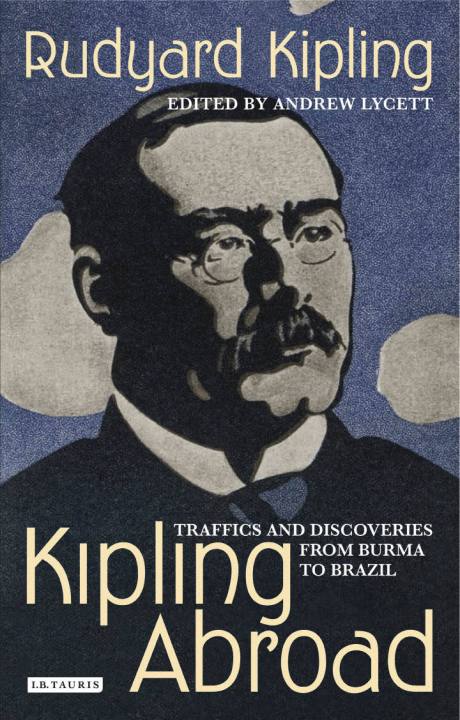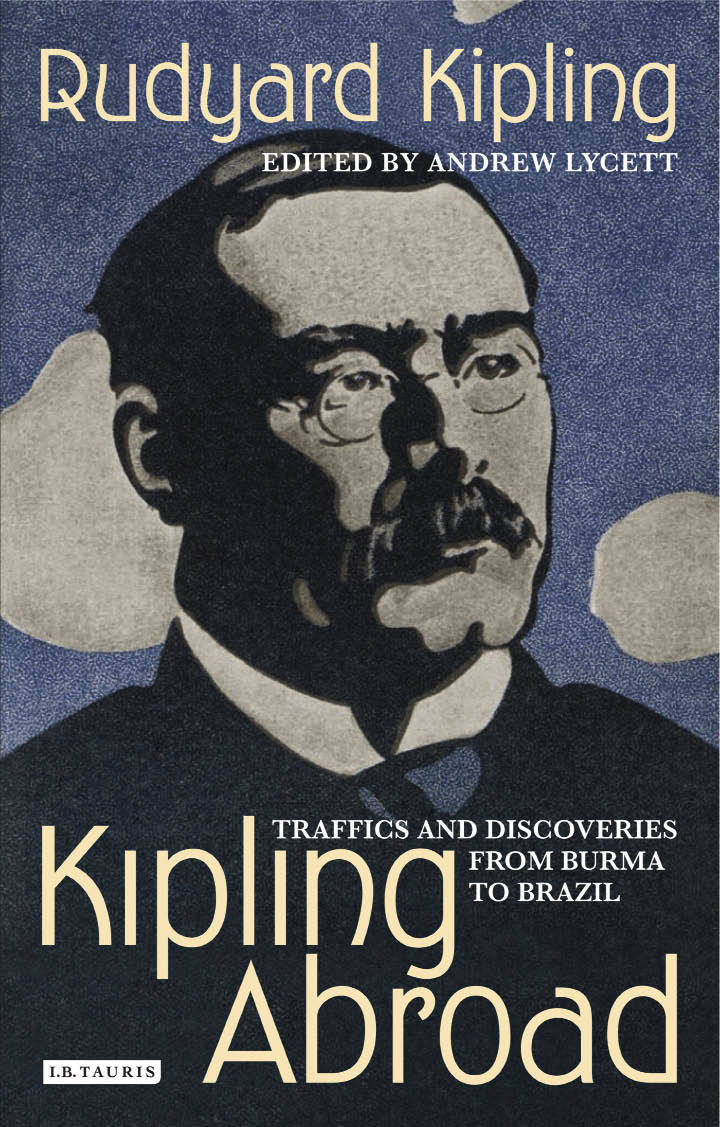In a sense, as this interesting collection of his writings makes clear, Rudyard Kipling was always abroad. His first vivid memories were of an early childhood in Bombay, ‘light and colour and golden and purple fruits’ in the market with his ayah, or visits with his bearer to little Hindu temples where ‘I held his hand and looked at the dimly-seen, friendly Gods.’ His descriptive writing is always full of sounds and smells; in fact there is a whole lecture in this collection on ‘the illimitable, the fascinating subject of smells in their relation to the traveller’.
Kipling’s first impressions of England were of a grey, dreary place. It was not until he went to school in Devon that he began to appreciate the English countryside. As a young reporter, he returned to the more exotic surroundings of India, where he honed his skills in the travel articles he wrote for the Civil and Military Gazette. Of strictly limited length, these provided an excellent training in a dense and spare style in which every word had to count. Then it was back to grey, fog-bound London and ‘the gloom of the Pit’. As he wrote in an early poem, not one of his better efforts:
The sky, a greasy soup-toureen,
Shuts down atop my brow.
Yes, I have sighed for London town
And I have got it now:
And half of it is fog and filth
And half is fog and row.
This sense of being suspended between two worlds, while belonging wholly to neither, must have been common among the children of the Empire. In his poem ‘Benefits of Travel’ in Kim, Kipling wrote:
Praised be Allah who gave me two
Separate sides to my head!
In both worlds he was simultaneously an alien and an insider, just as Kim was. When he finally came to rest in Sussex, his idea of the heart of rural life, which he described in stories like ‘An Habitation Enforced’ and ‘My Son’s Wife’, was somewhere outsiders had to win their way into. As he wrote of England when he came to live at Batemans:
It is the most marvellous of all foreign countries that I have ever been in. It is all made up of trees and green fields and mud and Gentry: and at last I am one of the Gentry!
Kipling’s Indian and English writings are so well known, that it is easy to overlook how widely travelled he was in other parts of the world. In Asia, he visited Burma, China, Japan and Malaya. He travelled extensively in America and Canada, and lived for a time in Vermont. He also spent several winters in South Africa and Egypt. Europe became a favourite destination for his much-loved motoring holidays, in a series of early and unreliable cars.
There is no one better at describing a landscape and the life that is lived in it, especially in extreme conditions. When he writes of a harsh winter in Vermont, the reader’s fingers tingle with the cold of the crackling snow. His account of the hot weather in the Indian newspaper office, with the languid punkah barely stirring the turgid air, has the sweat running down one’s back. He is also particularly good at arrivals — at Hong Kong in a fog, for instance, or at the Italian front in the Julian Alps in the first world war, or, most fondly of all, of Colombo on his way back to India, when ‘a smell came over the sea — a smell of damp earth, coconut oil, ginger, onions and mankind’.
In his later years, Kipling’s ventures abroad were mainly for the sake of his health, or in connection with his work for the Imperial War Graves Commission. This inspired some descriptive passages of great poignancy, including the extract from the short story ‘The Gardener’, set in a still raw war cemetery in Flanders and quoted in this collection.
Andrew Lycett, as a distinguished biographer of Kipling, is well qualified to bring together a wide-ranging selection of his writings in poetry and prose, fact and fiction. The extracts from letters are often the most revealing, less formal in tone, but with the same conscious search for the most vivid word or phrase which distinguishes all his work. The passages are arranged according to geography rather than chronology, and each chapter has a short and interesting introduction, explaining the place of that particular part of the world in Kipling’s life. Kipling despised what he called ‘Globe-trotters,’ who prided themselves on ‘doing India’ in ten days, but he did a good deal of globe-trotting himself, and in this book we can travel with him.







Comments